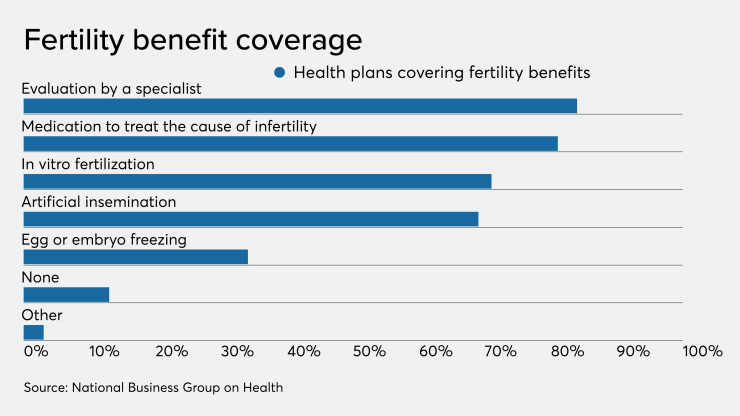When employers consider fertility benefits, services like egg freezing and In Vitro fertilization address the needs of female employees. But male employees are in need of these benefits too: 50% of infertility cases are attributed to men, according to an article published in the National Library of Medicine.
A new partnership and benefit enables men to identify male factor infertility issues caused by age, disease and lifestyle early on, and address any fertility challenges. WINFertility, a fertility benefits management company, and Dadi, a male fertility treatment company, have teamed up to create a fertility advocacy program for men that WINFertility is launching next week.
“We’ve been adding a lot more education elements specifically targeting the male, because of the increase in the male factor [for infertility],” says Peter Nieves, chief commercial officer with WINFertility. “This is contributing to the overall need for increased fertility benefits.”
Fertility needs are a highly personal issue for employees and men tend to be less likely to openly discuss their needs, according to a World Health Organization study. The WHO study also found that women accepted the assisted reproductive technologies to a greater extent than men, but men accept childlessness more often than women. Employers can help employees feel more comfortable with asking for help to create a more well-rounded benefits program that addresses the entire individual, Nieves says.
The collaboration offers both in person and virtual consultations with fertility specialists, as well as at-home sperm collection kits and online support for greater privacy and ease of treatment.
“Ultimately our mission is to normalize the conversation around male reproductive health,” says Tom Smith, CEO of Dadi. “What we found was not only was the male factor misunderstood and overlooked, but the services that did exist were really trapped in a time warp of 40 years ago.”
As part of the WIN for HIM program, Dadi will provide the results of sperm testing within 24 hours of receipt, which can be critical to addressing infertility issues. When a male factor defect is detected early, men and couples can be directed to the right treatment plan, which can save time and money, and keep employees from undergoing unnecessary procedures.
Indeed, the cost of fertility treatments can be prohibitive for the workforce, costing $12,000 per cycle on average. Just 18% of employers offer IVF coverage and about 19% of employers offer infertility treatments, other than IVF, to employees, according to the Society for Human Research Management’s 2019 employee benefits survey. Both figures declined by roughly 7% when compared to the previously collected data in 2017.
The collaboration between WINFertility and Dadi is meant to provide a solution that makes it easy for male employees to get the right testing, information and support, breaking down the barriers of stigma men often face.
“This is one of those areas where we’re going down the road but we’re still in an environment where, on the societal level, there's a lot of misunderstanding about male fertility in general,” Smith says. “What’s very clear is the process needs to be as simplified and as straightforward as possible.”






